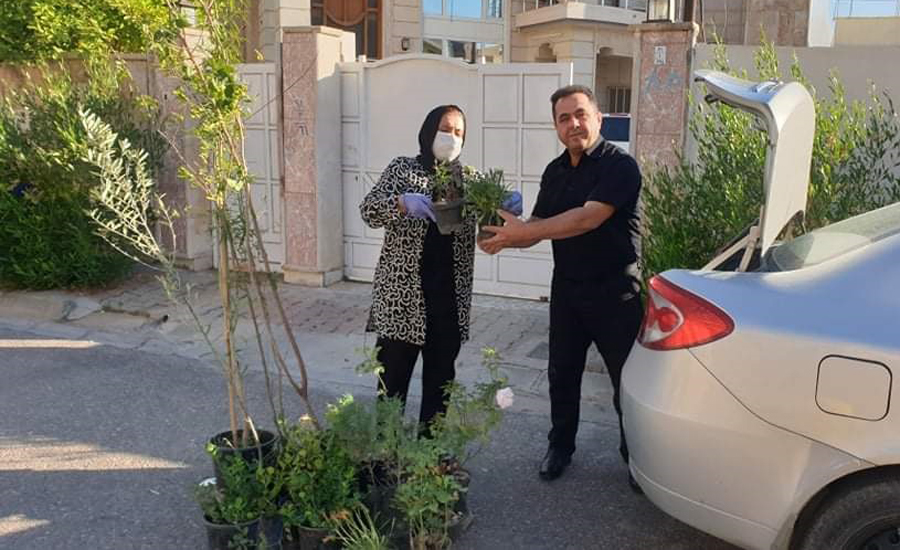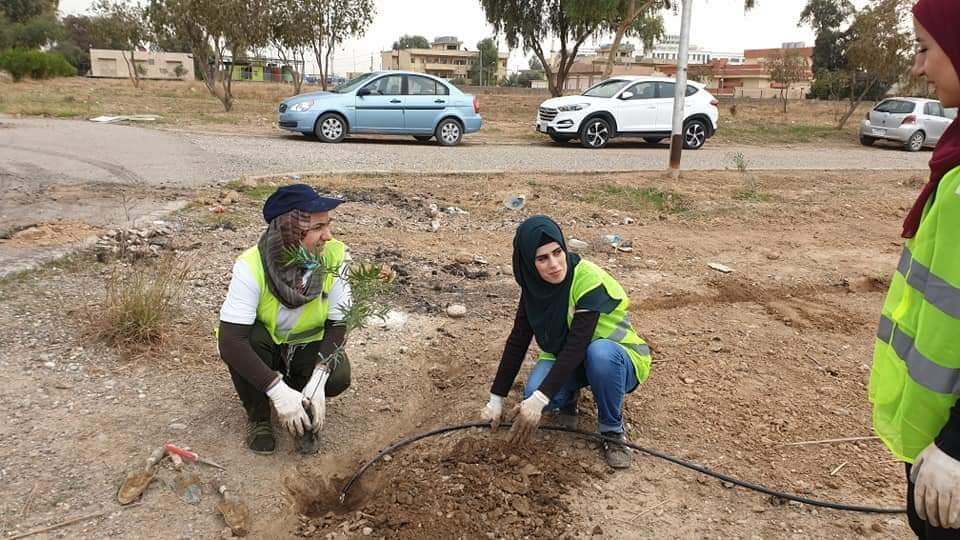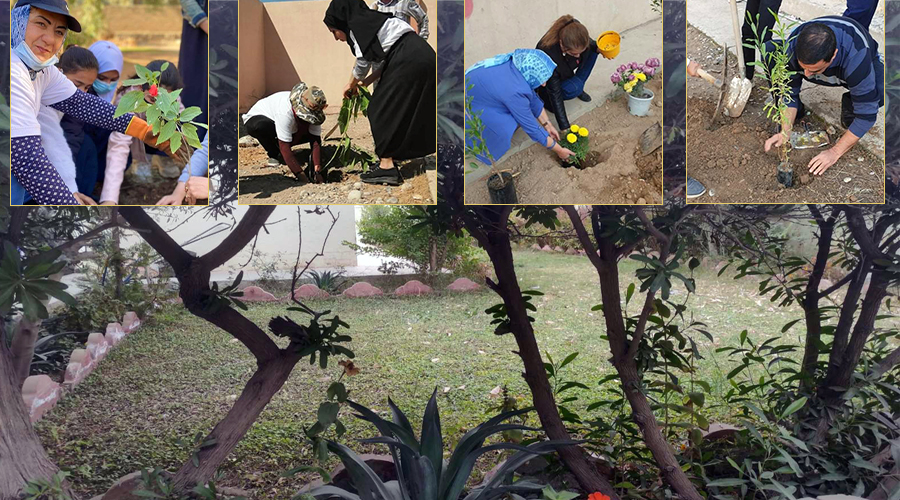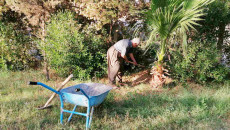Organizations for protection of environment, in coordination with the Directorate of Education in Kirkuk, launched a joint project to increase the percentage of urban green spaces in state schools by planting plants and seeds in schools.
The project was due to be launched last year, but the repercussions of the Corona pandemic and the closure of schools hindered the campaign.
Kamal Sharif, principal of the Galawezh School in Shoraw neighborhood of Kirkuk Northern Province, says that the greenery in schools has decreased significantly, stressing the importance of the efforts currently spent.
Galawezh school has two gardens, but they had a poor space of greenery before the campaign.
“This is the first time that environmental activists pay attention to the green space in our school, as they have planted 35 plants of seven different species,” Sharif said.
"I was overwhelmed with happiness when I saw the garden and the various flowers that were planted in it my school which has changed a lot," said Lava Soran, a student of Galawezh school.
"When we were approaching summer, our school used to turn hot and dry and its view was bleak. I hope that we all take care of the school garden and preserve its environment and beauty."
Kirkuk Directorate of Education keeps no records of green areas in schools while the percentage of greenery in some schools is zero.
These efforts come at a time when the percentage of greenery is declining in Kirkuk governorate, as it does not exceed 2% compared to 4% in 2017.
The oil-rich city of Kirkuk, pumps 2-3 million barrels a month generating hundreds of million Dollars for national revenues which 90% rely on oil marketing while the province suffers from proper basic public services in all sectors, in particular education and healthcare.
Kirkuk, Iraq’s second largest reserves, located 238 kilometers north of Baghdad, is an ethnically mixed province for 1,7 million Kurds, Arabs, and Turkmens. It has long been at the center of disputes between Baghdad and the Erbil.

The process of distributing plants to schools. KirkukNow
This campaign comes despite the fact that the percentage of green space in Kirkuk schools is better compared to its counterparts in the rest of Iraq, though it does not reach minimum green open space.
Directorate general of Kirkuk Education formed a committee to follow up the efforts to increase green landscapes in schools, after participating in a special competition in this field across Iraq. The competition showed that the situation in Kirkuk's schools was "much better", as confirmed by the environmental activist Shikofa Muhammad.
"During this period, we planted the gardens of five schools in Kirkuk... What made us happy is the keenness of teachers and students to participate in the campaign," Shikofa enthusiastically told KirkukNow.

Kirkuk environmental activists bring plant pots and plant it all over the city. KirkukNow
"We will continue this campaign and will distribute to each school 30 or more seedlings... Our goal is to increase greenery in schools where there is little or no green space," Shikofa added.
"We choose trees and plants that do not occupy a large area and whose roots do not extend under the walls of the building. We are also very interested in planting evergreen trees.”
A story about greenery posted last April by KirkukNow found out the efforts spent in the last ten years by Kirkuk administration to boost greenery in the city have sharply failed as greenery is diminishing due to lack of adequate budget for irrigation and maintenance, making the environment of Kirkuk dusty and untidy.
End of 2010, local officials of Kirkuk municipality, in charge of public services such as greenery maintenance and garbage collection, have told KirkukNow they will raise rate of greenery. In 2014, they declared their plan to surround Kirkuk with a green belt to contain dust.
There are about 184 public gardens in Kirkuk few of them are several donums, others are smaller. Besides, there are 81 medians whose lengths range from 1-5 km where trees are planted yet all about to dry out.






